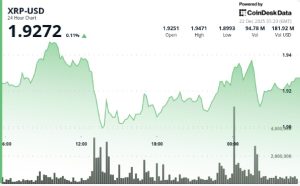The Los Angeles Wildfire Crisis: A Story of Devastation and Alleged Exploitation
The recent wildfires that ravaged Los Angeles have left a trail of destruction, claiming lives, displacing thousands, and exposing vulnerabilities within the city’s housing market. Amidst the tragedy, allegations of price gouging by landlords have emerged, adding another layer of hardship to an already dire situation. Jason Oppenheim, a prominent real estate broker and star of the Netflix reality series "Selling Sunset," has stepped forward to condemn this alleged exploitation, while also offering assistance to those affected by the fires.
Oppenheim’s accusations paint a grim picture of landlords capitalizing on the crisis by drastically inflating rental prices. He recounted an instance where a client seeking a rental property was quoted a price of $23,000 per month, a significant increase from the previous $13,000 asking price. Oppenheim denounced this practice as illegal price gouging, highlighting California’s laws against such exploitation during emergencies. He emphasized that this is not the time to take advantage of vulnerable individuals struggling to find housing amidst the devastation.
The wildfires, sparked by severe windstorms, have left a profound emotional impact on the community. Oppenheim described witnessing widespread distress, with people struggling to cope with the loss of their homes and the uncertainty of their future. The smoke-filled air and the emotional toll of the disaster have created an atmosphere of collective grief and anxiety.
In response to the crisis, Oppenheim and his brokerage, The Oppenheim Group, have pledged to provide free real estate services to displaced residents seeking temporary housing. This initiative aims to alleviate the burden on those grappling with the immediate challenge of finding a place to live while their homes are rebuilt. Oppenheim’s commitment reflects a sense of responsibility towards the community, recognizing the unique role real estate professionals can play in assisting those affected by the disaster.
The allegations of price gouging highlight a critical issue within disaster response – the potential for exploitation of vulnerable populations. While authorities have warned against such practices, enforcing these regulations amidst the chaos of a natural disaster can be challenging. Oppenheim’s outspoken criticism brings attention to this issue, urging both landlords and authorities to uphold ethical practices during emergencies.
The wildfires have exposed a pre-existing housing crisis in Los Angeles, where affordable housing is already scarce. The sudden surge in demand for rental properties following the fires has further exacerbated this issue, creating a competitive market that leaves many displaced residents struggling to find suitable accommodation. Oppenheim’s offer of free services, while commendable, underscores the systemic challenges within the housing market that need to be addressed even beyond the immediate crisis.
The Oppenheim Group’s initiative has garnered support from within the company, with several employees expressing their commitment to helping those affected by the fires. This collective effort demonstrates a sense of community and solidarity among real estate professionals, recognizing the importance of working together to support those in need.
The devastating impact of the wildfires extends beyond the immediate loss of homes and property. The emotional toll on the community is immense, with residents grappling with grief, anxiety, and uncertainty. The crisis has also exposed systemic issues within the housing market, highlighting the challenges of affordability and the potential for exploitation during emergencies.
The response from individuals like Jason Oppenheim and his company offers a glimmer of hope amidst the tragedy. Their commitment to providing free services to displaced residents reflects a sense of responsibility and a recognition of the critical role real estate professionals can play in disaster recovery. However, it also underscores the need for long-term solutions to address the underlying issues within the housing market that leave communities vulnerable during such crises.
The wildfires serve as a stark reminder of the importance of preparedness, community support, and ethical practices during emergencies. While the immediate focus is on providing relief and assistance to those affected, the long-term recovery process will require a collective effort to rebuild homes, address the housing crisis, and strengthen community resilience.
The ongoing efforts to combat the fires, locate missing persons, and provide support to those affected underscore the importance of collaboration between authorities, relief organizations, and community members. The wildfires represent a devastating tragedy, but they also reveal the capacity for compassion, resilience, and collective action in the face of adversity.
As the recovery process continues, it is crucial to remember the lessons learned from this disaster. The need for affordable housing, robust emergency preparedness plans, and ethical practices within the housing market are all critical components of building a more resilient community. The wildfires have exposed vulnerabilities within the system, but they have also revealed the potential for positive change and the importance of working together to create a safer and more equitable future for all.
The outpouring of support from individuals, businesses, and organizations demonstrates the strength and compassion of the community. While the road to recovery will be long and challenging, the collective effort to rebuild and support those affected offers a beacon of hope amidst the devastation.
The wildfires have left an indelible mark on the landscape and the lives of those affected. The stories of loss, resilience, and community support will continue to shape the narrative of Los Angeles in the years to come. The crisis serves as a reminder of the importance of preparedness, the power of community, and the need for ongoing efforts to address systemic issues that leave communities vulnerable to such disasters.















